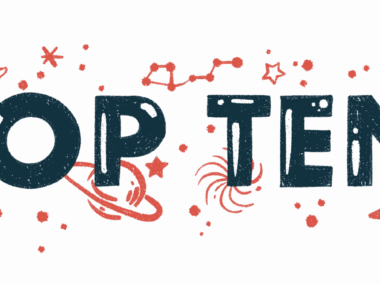Why we should listen to SMA patients about Evrysdi
Although I've benefited from Evrysdi, the drug's price makes it inaccessible to me
Written by |

Note: This column describes the author’s own experiences with Evrysdi (risdiplam). Not everyone will have the same response to treatment. Consult your doctor before starting or stopping a therapy.
“The drug likely won’t be effective on you. You’re in your 20s, and you’ve deteriorated to the point where you need a BiPAP ventilator.”
That was the argument used for two years by Singapore’s healthcare system when I tried to access the treatment Evrysdi (risdiplam). I tried to convince my medical team, their colleagues, and ethics board members that I would grow stronger with Evrysdi if given the chance to try it. But due to the unfairly high cost of SG$375,000 ($276,000) per year, the system denied me public financial aid.
“It’s too much money for the government to risk,” my team said.
I cried so many tears. I hated living in Singapore, a country that, to me, at times seems fine with leaving rare disease citizens behind. (How did Ukraine, a country at war, implement newborn screening for SMA before Singapore?)
In the end, I had to resort to crowdfunding online for a chance to be treated. At least I didn’t have to beg on the streets, thanks to the power of the internet.
My pleas were heard in May. Roche, one of the pharmaceutical companies that market Evrysdi, gifted me a three-month supply of the oral disease-modifying therapy.
The drug worked on me better than anyone expected.
The verdict
I wasn’t expecting to see nearly my entire team at the pediatric hospital when my mum opened the door to my neurologist’s room. It was July 20. The last time we met in March, I was given a yearlong road map for my Evrysdi assessments once I started treatment, and I was under the impression that only my neurologist would be present for my first treatment review. But then again, the last time we spoke, we were all under the impression that I’d have at least six months’ worth of Evrysdi from my crowdfunding, not three months’ from Roche. Our previous plans had to be tossed out. We were on a time crunch.
The purpose of my assessment that Thursday was twofold: Firstly, we wanted to determine if I’d gotten stronger with Evrysdi, and if so, how much, by comparing my scores with the ones from March. Secondly, should Roche and Singapore’s healthcare officials negotiate a deal to lower Evrysdi’s cost, enabling me to submit another financial aid request, we wanted to have undeniable evidence that Evrysdi would significantly improve my life.
As my physiotherapist and occupational therapist did their tests, I reported to my neurologist. I said I was drinking and eating more quickly and speaking more loudly, and was able to work without falling into fatigue-induced procrastination. She remarked that I indeed sounded clearer in person and on the phone with her.
That said, my limbs hadn’t improved enough for us to really tell.
Then came my speech therapist’s test.
As in March, my speech therapist poured me some water and timed me. It was the test I’d looked forward to the most, as a difference in my swallowing was the first change I noticed after a few days on Evrysdi. I slurped the water up as quickly as I could.
“That’s 16 seconds,” she said, stopping the timer on her phone.
I took 52 seconds in March.
My neurologist gasped. Everyone in the room cheered. I nearly cried happy tears.
There it was: quantifiable, undeniable proof that Evrysdi helps me. Vindication never tasted so sweet.
And then the question: “What now?”
The aftermath and beyond
My Evrysdi supply runs out after August. Coincidentally, August is SMA Awareness Month. I’m actually writing my columns in bulk right now, as I anticipate my stamina boost will wane once I’m off treatment. Goodbye to increased productivity, hello again to fatigue and brain fog.
Neither I nor my medical team know what will happen next. I’ve been told that Singapore’s healthcare officials are negotiating with Roche to lower Evrysdi’s price, but we don’t know if and when a deal will be finalized.
My crowdfunding campaign is unlikely to raise enough for another six months of the drug. In the event that it doesn’t, the money will go to the next SMA patient who crowdfunds for treatment on the same platform, per a promise I made before I knew the drug would strengthen me within weeks.
In the meantime, I’m making the most of my boost in strength and stamina. I’m snacking, heading out more, writing and reading like a fiend, and gaming so much I’m concerned for my laptop.
None of this would’ve been possible if people hadn’t listened to my voice as an SMA patient.
Note: SMA News Today is strictly a news and information website about the disease. It does not provide medical advice, diagnosis, or treatment. This content is not intended to be a substitute for professional medical advice, diagnosis, or treatment. Always seek the advice of your physician or other qualified health provider with any questions you may have regarding a medical condition. Never disregard professional medical advice or delay in seeking it because of something you have read on this website. The opinions expressed in this column are not those of SMA News Today or its parent company, Bionews, and are intended to spark discussion about issues pertaining to spinal muscular atrophy.








Jeffrey
Praying this works out for you and your able to get the funds you need to continue use Evrysdi! It has helped me also.
jorge miguel sousa
DearElisa,
thank you for your testemony and share. we are with you. regards,
Jorge e Frederica